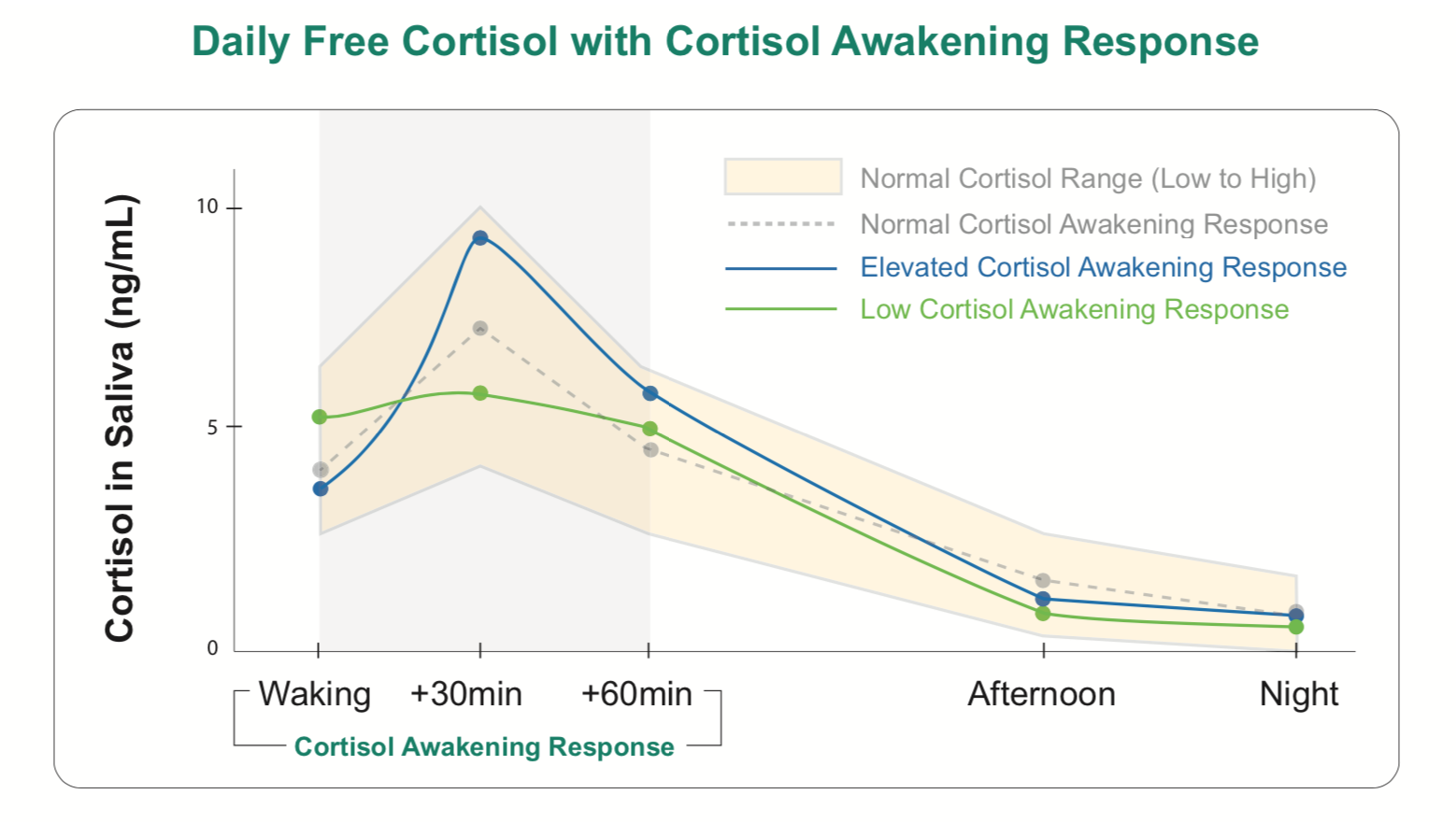The Best Time to Drink Coffee, According to Neuroscience
For many of us, the day doesn’t officially start until we’ve had that first cup of coffee. But if you’re pouring your brew within minutes of waking up, your brain might not be getting the full benefit. In fact, from a neuroscience perspective, timing your coffee could be just as important as choosing a high-quality bean. I recently spoke with Parade Magazine about the science behind this idea (check out the article here) - and why your morning routine might benefit from a slight shift.
Let’s explore why.
Your Brain’s Natural Wake-Up Call: Cortisol
When you wake up in the morning, your body experiences a natural surge in cortisol, a hormone that plays a key role in alertness and energy regulation. This spike, called the Cortisol Awakening Response (CAR), peaks about 30–45 minutes after you get out of bed. It’s your body’s built-in “natural espresso.”
If you sip caffeine while your cortisol is already peaking, you’re doubling down on stimulants. Instead of helping, it can leave you feeling more jittery, anxious, or stressed - especially if you’re someone prone to high stress or burnout.
When Should You Actually Have Coffee?
The sweet spot? About 90 to 120 minutes after you wake up.
That’s when your cortisol levels begin to decline, making caffeine more effective and less likely to interfere with your body’s natural rhythms. So, if you’re up at 7:00 a.m., aim to drink your coffee between 9:00 and 9:30 a.m. Not only will it feel more energizing, but you’re less likely to experience an afternoon crash or rebound fatigue.
What Caffeine Does to Your Brain
Caffeine is more than a pick-me-up, it’s a powerful neuromodulator. Here’s how it affects brain chemistry:
Blocks Adenosine: Adenosine builds up throughout the day and makes you feel sleepy. Caffeine blocks adenosine receptors, temporarily preventing that drowsiness signal.
Boosts Key Neurotransmitters:
Dopamine (motivation & mood)
Norepinephrine (alertness & focus)
Acetylcholine (learning & memory)
Together, these effects translate to:
Sharper focus
Faster reaction times
Enhanced short-term memory
Greater cognitive flexibility (your brain can switch between tasks more efficiently)
In essence, caffeine doesn’t just “wake you up” - it fine-tunes your brain’s operating system.
What Happens If You Drink Coffee Too Early?
Drinking coffee during peak cortisol hours can:
Make caffeine less effective (you’re already alert)
Increase jitteriness, irritability, or heart rate
Amplify stress responses
Lead to a steeper crash once both cortisol and caffeine wear off
Disrupt your body’s natural energy curve and sleep quality
Over time, consistently mistimed caffeine can actually blunt your natural cortisol rhythms - leaving you more dependent on coffee to function.
A Smarter Way to Caffeinate
If you want the mental clarity and mood lift without the stress or crash, here’s the neuroscience-backed approach: Delay your first cup by 90–120 minutes after waking.
This lets your body’s natural systems do their job first, so when the caffeine hits, it enhances rather than overrides your brain’s natural rhythm.
Think of it like this: your body already brewed its first cup internally. Let it do the work, then follow it up with your favorite roast as a supporting act -not the main headliner.
Summer Is the Perfect Time to Start Delaying Coffee
If you’re thinking, “Okay, but how do I actually wait 90 minutes for coffee?”. . . you’re not alone. I get it. For many of us, that warm cup is more than a stimulant; it’s a morning ritual.
But here’s the good news: summer is the ideal time to make the shift.
With earlier sunrises, warmer temperatures, and more opportunities for early-morning movement outside, your body already has access to powerful natural wake-up cues. Light exposure, fresh air, and gentle physical activity can all help reinforce alertness - making it easier to hold off on caffeine.
Building this habit now sets you up for success when the colder, darker mornings of fall and winter return, when you’ll be glad you’ve trained your brain and body to function with more natural energy first.
So if you’ve been curious about better caffeine timing, now’s the time to try it.
4 Ways to Wake Up Without Coffee (for the First 90 Minutes):
1.Get Outside Within 15 Minutes of Waking
Step into natural light—even if it’s cloudy. Morning sunlight sends a powerful signal to your brain’s master clock (the suprachiasmatic nucleus) to stop melatonin production and boost alertness. Bonus points if you walk or stretch while you’re out there.
2. Move Your Body - Even a Little
Gentle movement increases circulation, stimulates dopamine and norepinephrine, and tells your body it’s time to “switch on.” Try 2–5 minutes of stretching, a short yoga flow, or a brisk walk around the block—nothing intense, just enough to get your blood moving.
3. Hydrate Before You Stimulate
Dehydration can make you feel foggy and sluggish. Start your day with a tall glass of water (bonus if it’s cold) to help flush out overnight waste and kick-start your metabolism. Add lemon or a pinch of salt for added electrolytes if you like.
4. Use a Morning Wake Up Cue You Like
As you delay caffeine, anchor your morning with something you enjoy: an energizing playlist, a cold face rinse, a favorite podcast, or a few minutes of journaling. This builds a positive association with your new rhythm, and it will help you you enjoy the shift.
Final Takeaway
We often think of coffee as a morning necessity. But when you understand how your brain works, you realize that a little timing tweak can go a long way. By syncing your caffeine intake with your body’s natural cortisol curve, you’ll experience more focused energy, fewer crashes, and less stress throughout the day.
So tomorrow morning, before you reach for that mug, give your brain a chance to wake up on its own first. Your body (and your mind) will thank you for it.

